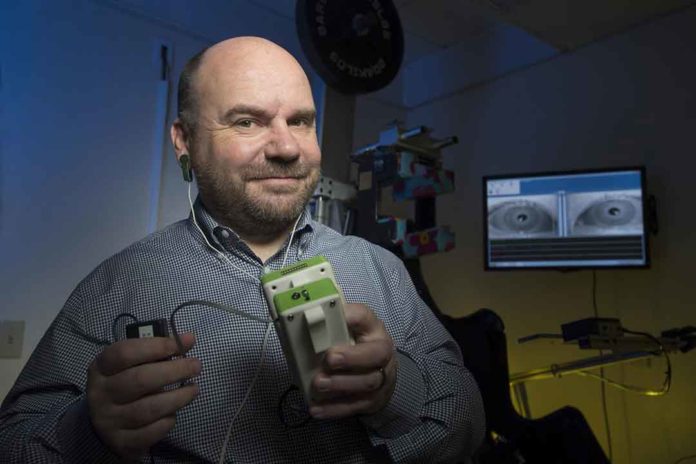Gulf War Syndrome, also known as Gulf War illnesses (GWI), comprises myriad complex symptoms and illnesses. GWI affects approximately 200,000 veterans of the 650,000 service members who served in operations Desert Shield and Desert Storm.
There are many likely causes, stemming from various exposures during the military operations. Some symptoms and illnesses linked to GWI include chronic fatigue syndrome, fibromyalgia, gastrointestinal disorders, infectious diseases, and other undiagnosed illnesses.
Now, scientists at Rutgers University have developed a new device i.e., an electrical stimulator that can improve the balance of vestibular systems affected by Gulf War veterans. This is the first study that examined how Gulf War illnesses affect veterans’ vestibular systems, which are integral to balance, memory, and brain blood flow.
Jorge M. Serrador, associate professor in the departments of pharmacology, physiology, and neuroscience at Rutgers New Jersey Medical School said, “Although it’s been more than 25 years since the conflict, we still do not understand the underlying cause of these symptoms and have yet to develop an effective treatment.”
Scientists examined inspected vestibular function in 60 veterans who took part in Operation Desert Storm/Shield, of which 54 endured with Gulf War illness and six of whom were healthy- and additionally, 36 citizens who were of a similar age and gender. They found that diminished vestibular function and poor balance appear to be prevalent in veterans with Gulf War Illness.
The simulator clipped to the earlobe and attached to a Walkman-size box that generated a low-level, random electrical noise pattern that was imperceptible to the wearer.
Serrador said, “The electrical stimulation added a random noise pattern into the veterans’ vestibular systems that traveled through the earlobes into the inner ear, which acts like the body’s accelerometer. This added noise improved balance in 100 percent of the veterans with Gulf War Illness.”
“For these veterans, it’s like walking on a balance beam all day. When they’re trying to figure out where they are in space to stay balanced, it’s sapping cognitive reserves for other functions like memory.”
Scientists are now testing how long the effects last after removing the device. They are also determining whether using a portable version of the stimulator helps relieve other symptoms of Gulf War illnesses.
The findings are being presented at the annual meeting of the Society for Neuroscience this week.
